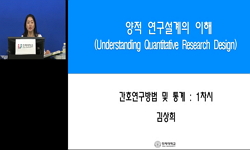The purpose of this study is to qualitatively analyze, on the basis of actual conversational data, the kinds of language strategies Korean and Japanese male and female university students use in order to interact with each other when restoring their r...
http://chineseinput.net/에서 pinyin(병음)방식으로 중국어를 변환할 수 있습니다.
변환된 중국어를 복사하여 사용하시면 됩니다.
- 中文 을 입력하시려면 zhongwen을 입력하시고 space를누르시면됩니다.
- 北京 을 입력하시려면 beijing을 입력하시고 space를 누르시면 됩니다.
https://www.riss.kr/link?id=A106487373
- 저자
- 발행기관
- 학술지명
- 권호사항
-
발행연도
2019
-
작성언어
Korean
- 주제어
-
등재정보
KCI등재
-
자료형태
학술저널
-
수록면
139-160(22쪽)
-
KCI 피인용횟수
2
- DOI식별코드
- 제공처
- 소장기관
-
0
상세조회 -
0
다운로드
부가정보
다국어 초록 (Multilingual Abstract)
The purpose of this study is to qualitatively analyze, on the basis of actual conversational data, the kinds of language strategies Korean and Japanese male and female university students use in order to interact with each other when restoring their relationships. When Korean and male and female students had positive and smooth conversations, apologizers uttered expressions of apology (미안하다), acceptance of responsibility, and damage reimbursement in order to actively solve the problem. The opponent of the apologizer also utilized utterances of acceptance and accepted the apologizer’s apologetic behavior when there was the possibility of problem-solving. However, when Korean male students faced negative and unsmooth conversations, the opponent of the apologizer continuously and directly blamed the apologizer, and the apologizer tended to show avoidance of responsibility and utterances of complaint expressions to reject the apologizer’s apologetic behavior. Korean female students utilized words showing friendliness such as ‘friend’ to alleviate damage somewhat when blame between friends or other situations of losing face occurred. When Japanese and male and female students had positive and smooth conversations, the apologizer continuously used expressions of apology (ごめん、すまない、申し訳ない) and uttered acceptance of responsibility and damage reimbursement to solve a problem. The opponent of the apologizer also tended to use concession and utterances of acceptance, rather than utterances of the clear demand for damage reimbursement. In negative and unsmooth conversations, Japanese male student apologizers tended to politely express ending words when the willingness for damage reimbursement was uttered even between friends. When opponents of apologizers are Japanese female students, they tended to use indirect blame more frequently compare to other groups, to avoid linguistic behaviors that could cause the other to lose face.
목차 (Table of Contents)
- Abstract
- 1. 들어가며
- 2. 연구방법
- 3. 분석방법
- 4. 결과 및 고찰
- Abstract
- 1. 들어가며
- 2. 연구방법
- 3. 분석방법
- 4. 결과 및 고찰
- 5. 나가며
- 参考文献
- 要旨
참고문헌 (Reference)
1 정현아, "화용론적 관점에서 본 사죄행동의 상호작용에 대한 한일대조- 물질적·신체적·정신적 피해 상황을 중심으로 -" 한국일어교육학회 (45) : 145-164, 2018
2 정현아, "韓日男女大学生の「謝罪談話」の構造及び展開の特徴-ポライトネス理論の観点から-" 한국일본어학회 (48) : 85-103, 2016
3 정현아, "負担度の高い場面での『謝罪·応答発話文』の日韓対照" 한국일본어학회 (56) : 121-138, 2018
4 大谷麻美, "謝罪はどのように遂行され、どのように解釈されたのか:英語の謝罪談話のケーススタディー" 社会言語科学会 21 : 64-67, 2008
5 大谷麻美, "謝罪とその受け入れのプロセスに見る相互行為-アメリカ英語の謝罪談話の事例研究" 日本英語コミュニケーション学会 22 : 55-68, 2013
6 이길용, "語用論·社会言語学研究の現状と展望" 한국일본어학회 (51) : 41-56, 2017
7 Searle,John R., "言語行為-言語哲学への試論-" 勁草書房 1986
8 Lakoff,R., "言語と性-英語における女の地位" 有信堂 1990
9 任栄哲, "箸とチョッカラク ことばと文化の日韓比較" 大修館書店 2004
10 崔信淑, "社会における謝罪行為に関する日中韓対照研究ー重大事件に関する新聞記事の分析ー" 12 : 135-148, 2006
1 정현아, "화용론적 관점에서 본 사죄행동의 상호작용에 대한 한일대조- 물질적·신체적·정신적 피해 상황을 중심으로 -" 한국일어교육학회 (45) : 145-164, 2018
2 정현아, "韓日男女大学生の「謝罪談話」の構造及び展開の特徴-ポライトネス理論の観点から-" 한국일본어학회 (48) : 85-103, 2016
3 정현아, "負担度の高い場面での『謝罪·応答発話文』の日韓対照" 한국일본어학회 (56) : 121-138, 2018
4 大谷麻美, "謝罪はどのように遂行され、どのように解釈されたのか:英語の謝罪談話のケーススタディー" 社会言語科学会 21 : 64-67, 2008
5 大谷麻美, "謝罪とその受け入れのプロセスに見る相互行為-アメリカ英語の謝罪談話の事例研究" 日本英語コミュニケーション学会 22 : 55-68, 2013
6 이길용, "語用論·社会言語学研究の現状と展望" 한국일본어학회 (51) : 41-56, 2017
7 Searle,John R., "言語行為-言語哲学への試論-" 勁草書房 1986
8 Lakoff,R., "言語と性-英語における女の地位" 有信堂 1990
9 任栄哲, "箸とチョッカラク ことばと文化の日韓比較" 大修館書店 2004
10 崔信淑, "社会における謝罪行為に関する日中韓対照研究ー重大事件に関する新聞記事の分析ー" 12 : 135-148, 2006
11 近藤富美子, "日米比較「謝罪」考-謝罪のあり方とその照準-" 16 : 49-62, 2002
12 오키 히로코, "日本語の談話構築態度 - 日韓相互の情緒的違和感を説明するモデルの検討 -" 한국일본어학회 (55) : 141-158, 2018
13 宇佐美まゆみ, "多文化共生社会における異文化コミュニケーション教育のための基礎的研究" 科学研究費補助金基礎研究C 1-20, 2011
14 宇佐美まゆみ, "基本的な文字化の原則(Basic Transcription System for Japanese:BTSJ)の韓国語への応用について, in 談話研究と日本語教育の有機的統合のための基礎的研究とマルチメディア教材の試作" 1-36, 2007
15 朴福徳, "在韓日本人の言語生活についてー感謝、詫び、詫びと感謝の表現を中心にー" 31 : 247-276, 2001
16 ボイクマン総子, "友人間での謝罪時に用いられる語用論的方策-日本語母語話者と中国語母語話者の比較-" 日本語用論学会 7 : 31-44, 2005
17 정현아, "「謝罪行動」の相互作用の結果に対する韓日対照研究 -韓日男性母語話者を研究対象にして-" 한국일본어학회 (52) : 85-100, 2017
18 Brown.P., "Politeness-Some universals in language usage" Cambridge University Press 106-132, 1987
동일학술지(권/호) 다른 논문
-
- 한국일본어학회
- 이우제
- 2019
- KCI등재
-
日本語学習者の作文作成過程における 表現と内容の変化 -協同推敲活動前後の作文の比較から
- 한국일본어학회
- Komatsu Nana
- 2019
- KCI등재
-
- 한국일본어학회
- 오키 히로코
- 2019
- KCI등재
-
土産菓子の商品名における横浜の文字表記 - 地名の文字表記に投影されたローカル・アイデンティティ -
- 한국일본어학회
- Nakamura Yuri
- 2019
- KCI등재
분석정보
인용정보 인용지수 설명보기
학술지 이력
| 연월일 | 이력구분 | 이력상세 | 등재구분 |
|---|---|---|---|
| 2027 | 평가예정 | 재인증평가 신청대상 (재인증) | |
| 2021-01-01 | 평가 | 등재학술지 유지 (재인증) |  |
| 2018-01-01 | 평가 | 등재학술지 유지 (등재유지) |  |
| 2015-01-01 | 평가 | 등재학술지 유지 (등재유지) |  |
| 2011-01-01 | 평가 | 등재학술지 유지 (등재유지) |  |
| 2009-01-01 | 평가 | 등재학술지 유지 (등재유지) |  |
| 2006-01-01 | 평가 | 등재학술지 선정 (등재후보2차) |  |
| 2005-01-01 | 평가 | 등재후보 1차 PASS (등재후보1차) |  |
| 2003-01-01 | 평가 | 등재후보학술지 선정 (신규평가) |  |
학술지 인용정보
| 기준연도 | WOS-KCI 통합IF(2년) | KCIF(2년) | KCIF(3년) |
|---|---|---|---|
| 2016 | 0.31 | 0.31 | 0.26 |
| KCIF(4년) | KCIF(5년) | 중심성지수(3년) | 즉시성지수 |
| 0.28 | 0.25 | 0.519 | 0.09 |




 DBpia
DBpia



